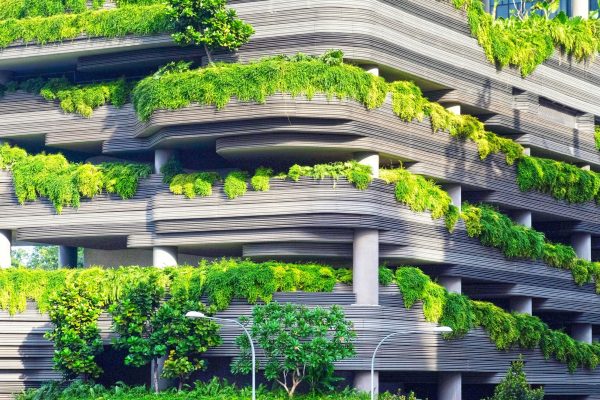Is The Line An Attainable Solution to Saudi Arabia’s Dependency on Oil?
When the Crown Prince of Saudi Arabia, Mohammed bin Salman (MBS) first revealed the design of “The Line,” millions were left astonished. A futuristic city of nine million people, only 200 meters wide and almost 170 kilometers long runs on 100 percent renewable energy. How could this ever be possible in a world that seems to be on a disastrous environmental trajectory? As you may have guessed, all that glitters is not gold, and this utopian concept, as ambitious as it sounds, does not shine bright.
The Line is part of Saudi Arabia’s Vision 2030 which, according to its website, is meant to “harness the strengths God bestowed upon us – our strategic position, investment power, and place at the center of the Arab and Islamic world.” In reality, and as the introductory paragraph suggests, Vision 2030 is much more of a geopolitical strategy game than anything else and will tentatively shift Saudi Arabia’s dependence on its vast oil reserves toward a more sustainable approach to economic development and the financing of the welfare services it provides to its citizens. The government of Saudi Arabia is, in fact, aware of the long-term cost that sticking to its oil-based economy could have on its ability to maintain such an expensive welfare state as well as its strategic position in global politics. While the Gulf state exports around 7.38 million barrels per day, according to Reuters, and “53 percent of the Saudi government’s revenues were oil-based,” according to the US Energy Information Administration, the global community of oil importing countries is beginning efforts to move away from such a non-replenishable energy source. When seen through this perspective, Vision 2030 takes a more existential shape.
Nonetheless, one has to be careful when applauding such efforts. As awesome as it sounds, NEOM, the futuristic city in the Tabuk Province of northwestern Saudi Arabia which is set to host the Line, raises important questions surrounding the feasibility of its construction as well as its impact on the local natural environment. Through built-in modules, The Line will provide the most essential services, such as clinics and entertainment venues, within a five-minute walk from one’s housing. In addition, high-speed trains will take residents end-to-end in less than 20 minutes while other automated services will be run by an unspecified artificial intelligence system. With temperatures that fluctuate between 40 and 102 degrees Fahrenheit, a mix of strategically-placed shades, green open spaces and ventilation tunnels, The Line will, if realized, achieve stable microclimatic environments while keeping its residents comfortable.
However, a 2030 completion deadline and growing cost estimates, which place the total cost for the development at over a trillion dollars, are putting the Crown Prince’s very own wonder of the world in danger, Wall Street Journal documents show. New details have since been revealed showing that what MBS calls a “civilizational revolution,” will have profound damaging effects on the Tabuk Province’s ecosystem and tribal communities, demystifying the project’s monumental significance.
Some of the most direct effects that the Line would bring about are relatively easy to identify. For instance, how will the project’s developers solve the issue of the millions of migratory birds annually crossing The Line’s trajectory and the city’s 500-meter-tall walls? What systems have the developers ideated that will allow for local fauna to cross The Line without having to sidewalk its 170 kilometers length? And again, how will The Line’s vertical farming provide its residents with sustainably sourced agricultural produce without impacting the residents’ living experience as well as the overall water supply? One would think that a trillion-dollar project would have clear and definite answers to such nerve-wracking questions but, to my surprise, I could not find them anywhere.
As if this weren’t enough, the straw that breaks the camel’s back is an investigation by The Guardian which shows that the project’s development will likely cause the forced eviction of over 20,000 Al-Huwaitat tribesmen that have lived in the region for generations. Despite such factors being a threat to the project’s reputation, the development of The Line is still standing strong, backed by a persistent House of Saud and leading me to one conclusion regarding the strategic need for such an improbable enterprise. The announcement of The Line has successfully managed to distract the global community from the Crown Prince’s involvement in the killing of journalist Jamal Khashoggi and the country’s persistent violations of the most basic human rights, a practice observed by Human Rights Watch in other Gulf countries.
While the current global energy crisis is replenishing Saudi revenues, it is my strongest opinion that this development project should not continue. The Line does nothing to solve the global income inequality that is exposing the most vulnerable populations to the dangers of climate change. On the contrary, it exemplifies everything that is wrong with today’s state-driven environmental policies, which cover up the lack of effective institutional environmental action we are witnessing in the 21st century.











